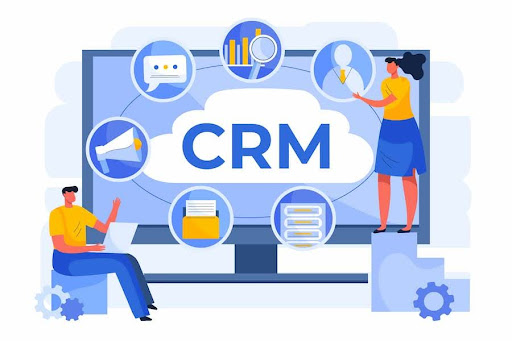Dynamics CRM 365 shines as a strong and adaptable tool for managing customer relations, simplifying processes, and boosting team output. It’s a smart platform loaded with tools developed to help all facets of your sales, marketing and customer service activities; it is more than just a directory of contacts. Although many users are acquainted with the fundamental features, several advanced features within CRM Dynamics 365 are often ignored, yet can greatly improve company performance. These tools, from automation and field service tools to artificial intelligence-powered analysis, will enable your teams to operate smarter, respond more swiftly, and offer a superior customer experience. Let’s go over the key Dynamics 365 aspects you ought to be using.
Contents
AI-Powered Insights with Relationship Analytics
Among the most strong but underused components in Dynamics 365 for Sales is Relationship Analytics. This AAI-driven instrument analyses customer behaviour, communication patterns, and degree of involvement. It lets your team know how active and responsive a client is, so enabling sales representatives to rank leads according to their degree of engagement. Artificial intelligence enables the CRM to provide clever suggestions on when to follow up, what to do next, and how to improve client relationships. It enhances your chances of closing transactions and developing trust in addition to saving time.
Customizable Dashboards
Dynamics CRM assists with that by using bespoke dashboards, since every team has different goals. Dashboard designs customized to match their jobs let users concentrate on crucial performance indicators, activities, and real-time analytics unique to their daily work. While sales emphasise revenue projections, marketing could monitor campaign performance. While frontline employees see only what is most important to them, managers can get a high-level summary. This customised approach enables departments and people to quickly make wise, data-driven decisions. Moreover, setting up is straightforward and natural, thanks in part to the drag-and-drop interface.
Built-In Gamification
Who claims CRM solutions have to be dull? Microsoft Dynamics CRM adds a fun, competitive edge to everyday chores thanks to embedded gamification. To inspire staff members, you could set performance-based challenges, bestow badges, and compile leaderboards. Particularly in sales and customer service departments, this feature is quite successful since quantifiable performance encourages good rivalry. Gamification raises morale and involvement in addition to boosting productivity. By means of incentives and exposure, acknowledging top performers improves team morale and gives daily tasks a feeling of accomplishment.
Advanced Workflow Automation
Thanks to its integration with Power Automate, Dynamics CRM enables sophisticated workflow automation. This function lets you establish conditional processes for jobs like lead qualification, invoice creation, or approval demands. Automated processes release your team’s time for more strategic work, remove repetitive activities, and lower the possibility of human mistakes. For instance, the CRM can assign a fresh lead automatically, set reminders, and alert the proper team members when one enters the system. Furthermore guaranteeing consistency throughout activities, automation is critical for the expansion of teams.
Field Service Management Tools
Field Service Management is a must-have tool for companies with field-level technicians or mobile staff members. Built inside Microsoft Dynamics 365 Business Central, these instruments cover inventory management, work order tracking, scheduling and dispatch. With this capability, businesses may quickly and more correctly deliver service, track field progress in real-time, and allocate jobs effectively. It boosts consumer happiness, improves communication, and cuts back on delays. Whether you oversee service technicians, onsite repair teams, or utility employees, this function enables you to more efficiently run operations from headquarters to the field.
Dynamics CRM gets even more effective for lead generation and relationship management when LinkedIn Sales Navigator is integrated. From within your CRM, this tool offers information on corporate news, shared connections, and professional profiles. Sales teams can more easily find possibilities and create deeper context relationships. This interface guarantees that your communication is informed, pertinent, and prompt. Supported by rich, actionable data, it is about reaching the appropriate individuals at the appropriate time rather than just gathering names and emails.
Role-based Security
Among the most important but underappreciated aspects of Dynamics 365 is role-based security. It lets companies manage data access depending on user roles, departments, or employment duties. This implies staff members only view the information pertinent to their roles nothing more or less. Eliminating needless garbage enhances user experience in addition to safeguarding sensitive data. Role-based access enables companies to comply with sector norms and data privacy laws.
Conclusion
Microsoft Dynamics CRM is a full suite of smart tools meant to improve your customer interactions, automate operations, and expand your company, not only a storage of client data. Whether via artificial intelligence insights, sophisticated automation, or custom dashboards, each of these capabilities can offer great worth if used to their maximum. Therefore, if you use Dynamics CRM, make the effort to go beyond the basics.
